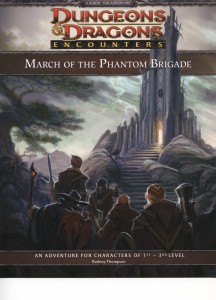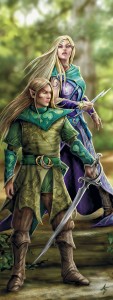Creating combat encounters is a lot easier than creating social encounters in D&D. When it comes to combat most DMs have a really clear idea of what they need to do to prepare. Social encounters by their very nature tend to be less predictable, catching many DMs woefully unprepared for the decisions and actions the party chooses. Although there are guidelines on how to set up and run skill challenges, more complex social encounters that rely on role-playing and interaction with NPCs can become more complicated than fighting Orcus himself.
Most social encounters are played out as skill challenges, if the DM even feels that there is a significant challenge involved. If the goal is merely to meet an important NPC or find out a particular piece of information while hanging out at a bar, than a little bit of role-playing may be all that’s required. However, if the goal is more complex and if there are consequences for failing, then a skill challenges is likely the best way to adjudicate the encounter.
The amount of work required by the DM to create these encounters is really dependent upon the group’s play style. If they’d rather just bash monsters with their weapons and spells, then social encounters will be looked upon as the filler between fights. But for groups that enjoy the role-playing side of things, a social encounter presents an opportunity for them to really develop their PC and use skills more heavily then they usually do during combat. Once you know which type of group you’re designing the encounter for then you can decide if you want to do it the fast way or take the detailed approach.

